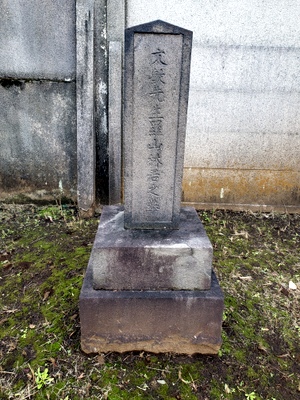Hayashi Razan
Hayashi Razan was the first official Confucian advisor to the Tokugawa shogunate, playing a significant role in foreign relations as well. The first of the Hayashi clan shogunal advisors during the Edo period, he advised the first four shoguns, from Tokugawa Ieyasu to Tokugawa Ietsuna, and established the position as hereditary.
He studied the Neo-Confucianism of Zhu Xi under Fujiwara Seika.
As early as 1611, Razan began to represent Ieyasu and Japan as a central political and cultural authority, to which other countries send tribute. This took place in a letter to the Ming court, sent on behalf of the shogunate and via Honda Masazumi and the governor of Fujian, seeking to normalize relations. Razan met with ambassadors from Korea in 1617. Still, he struggled against the influence of Buddhist monks Tenkai and Ishin Sûden, feeling that Neo-Confucianism should guide policy, and Buddhism should not. Attempting to strengthen his position, he conducted research into Japanese history, producing works such as Honchô jinja-kô ("Thoughts on Shrines of Our Realm"), and beginning the Honchô tsugan ("A General History of Our Realm"), modeled on Zhu Xi's Tongjian gangmu ("Outline and Details of the Comprehensive Mirror"); the latter work, in 310 volumes, would be completed by Razan's son Hayashi Gahô in 1670.
In 1630, he founded a Hayashi clan school which would later become the Shôheizaka gakumonjo, a major center of Confucian learning for shogunate and domain officials. He added a Confucian shrine, the Senseiden, to the complex in 1632.
Razan is credited with the editing or compilation of numerous works, including the 1643 Kan'ei shoka keizuden, a compilation of samurai genealogies completed alongside his son Hayashi Gahô. He was also involved in promoting the publication of Honzô Kômoku, a Japanese version of the Chinese botanical and pharmacological encyclopedia Běncǎo Gāngmù. Razan also composed a treatise against Christianity entitled Hai Yaso ("Rejecting Jesus").[1]
Razan died in 1657. His son Gahô inherited his positions as shogunal advisor, and as head of the Confucian school.
References
- Arai Hakuseki, Joyce Ackroyd (trans.), Told Round a Brushwood Fire, University of Tokyo Press (1979), 294n171, 314n74.
- Wm. Theodore de Bary, Carol Gluck, and Arthur Tiedemann (eds.), Sources of Japanese Tradition, Second Edition, vol. 2, Columbia University Press (2005), 68.
- ↑ Watanabe Hiroshi, A History of Japanese Political Thought, 1600-1901, International House of Japan (2012), 156.
